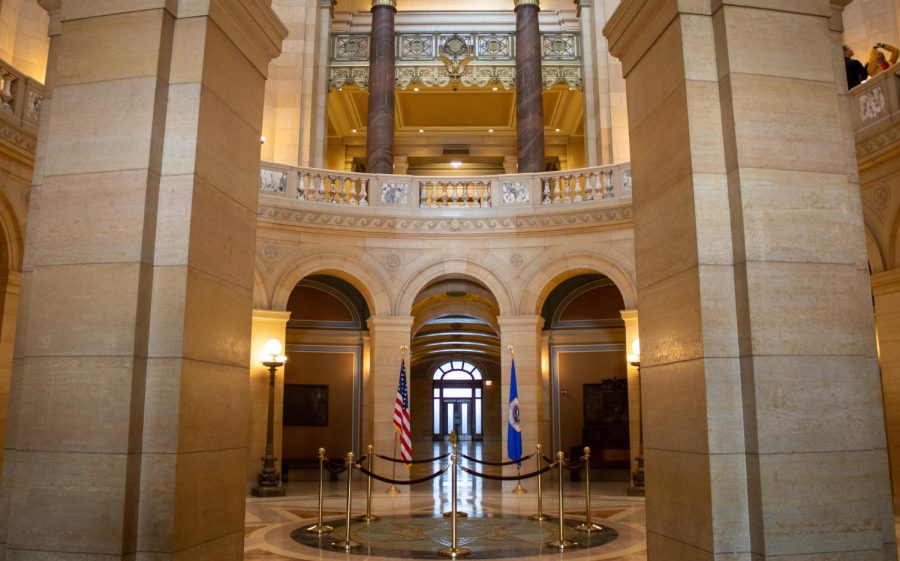A new bill in the Minnesota Legislature, introduced on March 1, would implement ranked-choice voting (RCV) for federal and state elections.
The bill most recently had hearings in the House Elections, Finance and Policy Committee and the Senate Committee on State and Local Government and Veterans on March 17. Both committees amended the bill and re-referred it to committees, where it now waits.
While Minneapolis, St. Paul, St. Louis Park, Bloomington and Minnetonka voters use RCV for local elections, RCV would extend to state and federal elections if passed. Local jurisdictions would still decide whether to implement RCV for local elections.
Under RCV, voters rank their top three candidates. If their first-choice candidate receives the least amount of votes, their votes will count toward their second-choice candidates. This process is repeated until a candidate receives a majority of casted votes. This process would also be used in U.S. congressional and presidential elections in Minnesota.
If signed into law, Minnesotans would see RCV starting the 2026 electoral season. This could make Minnesota the third state, behind Alaska and Maine, to adopt RCV for statewide elections.
Supporters and opponents voice opinions
Supporters of the bill say RCV allows voters to support their favorite candidates without fear of inadvertently helping the candidate they like least.
University of Minnesota political science student Jackson Gunvalson said RCV will give voters the chance to vote for candidates they agree with instead of the more politically viable candidates.
“I think it gives people more opportunity to express themselves and their political opinions,” Gunvalson said.
State Sen. Kelly Morrison (DFL-Minneapolis) co-authored the bill and said RCV will combat “the toxicity of modern politics.”
“Candidates have to appeal to their opponents’ supporters for second and third-choice votes,” Morrison said. “They do that by running positive campaigns that focus on policy solutions rather than personal attacks.”
Opponents of RCV say recent elections with RCV have not improved candidate quality or reduced negative campaigning.
The ranking minority member on the Election Committee, Sen. Mark Koran (R-North Branch), said RCV “ removes the assurance and transparency we have come to expect from our elections.”
Based on previous RCV elections, a concern is voters not understanding how RCV works when they enter the voting booth.
“I remember for the Minneapolis RCV mayoral election, people did not fully understand it,” Gunvalson said. “At least for the first cycle or two, there will be people who are confused.”
RCV Task Force
To implement standards for RCV, the bill would create the Statewide Ranked Choice Voting Implementation Task Force. The goal of the task force would be to determine the tabulation methods and reporting process for the 2026 general election and beyond.
Members of the task force would include the secretary of state, citizen representatives from across Minnesota, elected officials and appointees of several councils and governing boards.
The Minnesota Indian Affairs Council, the Minnesota Council on Disability, the Governing Board of Fair Vote Minnesota and more would also be included in the task force to ensure a diversity of backgrounds and thought.
Money from the general fund of the Legislative Election Commission would be used to support the task force’s word and prepare for the 2026 electoral season with RCV.








